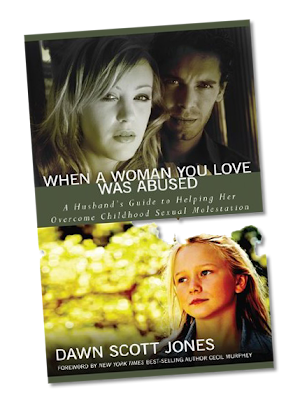Feeling the Pain Part
Two
I didn’t understand the severe impact sexual abuse had on me. For years I wasn’t able to grasp the depth of
my pain. I knew something was wrong, yet I rejected the possibility that it was
connected to my childhood sexual abuse. I criticized myself and minimized my
experience.
Stop overreacting; you’ve only suffered a
minor offense. It’s no big deal.
You’re weak and incapable
of shrugging off a bad experience. Move on.
But I couldn’t move on. More guilt. If the solution was that easy, what
was wrong with me?
Was I too weak? Defective?
Why couldn’t I forget my
abuse?
I must have asked myself those questions hundreds of times. I
wanted to bury the past or at least ignore
it, but it wouldn’t go away. I was stuck.
Today I know I wasn’t weak. Struggling with the effects of sexual
abuse is expected and the rule, not the exception. My past and all its pain were
knocking on the door of the emotional closet I’d stuffed them into, and those
emotions wanted out.
I understood that opening the door and acknowledging the past
were the only way to move on, but I couldn’t do it. Facing the raw truth of sexual
abuse terrified me. Instead, I suppressed my pain and remained emotionally frozen.
As long as I was strong and in control, everything seemed
okay. But when I opened the door of my
past sexual abuse, I felt overwhelmed; afraid of my vulnerability and emotional
weakness.
I have to feel this—I need
to heal.
It took me months to form those words in my thoughts and even
longer to say them aloud. But once I accepted that I needed to feel if I wanted to heal, I repeated the
words to myself out loud.
I needed to feel, to grieve my unresolved sorrow, and find peace
with my past.
I’m not alone.
Sexual abuse is a wounding
invasion—a molestation of mind and soul. When it happens, (and it happens all
too often) it shatters our emotions, our trust, and our ability to trust. It destroys feelings of
security. We are stripped of our boundaries. We feel powerless, vulnerable, and fearful.
We’ve been intimidated—our self-confidence, decimated.
Survivors have described other struggles:
• Shame and guilt
• A sense of worthlessness and damaged
self-esteem
• Fear, anxiety, and panic attacks
• Sleep disturbances
·
Eating disorders
• Impaired memory and flashbacks
• Fear of trust and intimacy
• Depression and suicidal thoughts
Yes, sexual assault cuts deeply.
To be whole we must be honest about the psychological imprint abuse
leaves on us as survivors. Everyone’s experience is different, but no matter
what form of sexual abuse we encountered, it left its mark.
For me, being honest about
my abuse meant accepting the fact that it wasn’t my fault, I wasn’t bad. I worked at feeling compassion toward myself by
thinking kind and sympathetic thoughts that replaced the voice of my ever-present,
inner-critic with the disappointed, scolding tone.
I still teetered on the side of intolerance when my emerging,
tender spirit showed signs of breaking
through, but that’s when I mustered the words to remind myself,
Sexual abuse is a big deal,
I will acknowledge that what was done
against me was horrifically wrong.
Self-compassion is still a challenge for me. It’s easy to slip
back into my default system and become harsh and demanding on myself. I have to
remember I’m not bad for having needs, and I’m not flawed for wanting love.
Do you have a story too? Sexual abuse, regardless of its
nature, has left a horrific impact on you. It’s scarred your heart.
I encourage you to be honest about the pain of
your sexual abuse and recognize and feel
the damage that was done to you. Healing
is possible, and you can explore the depths of your wounds and begin recovery.
How has abuse affected you? Please share.

